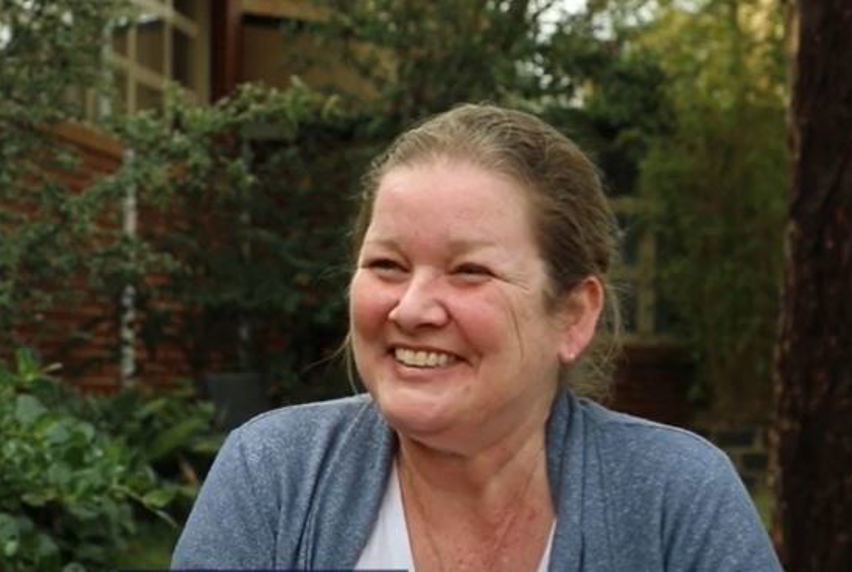Meg Madeley helping community through Mental Health training

Meg Madeley brings her whole self into her role as a newly minted direct support worker in the mental health care sector. Her lived experience and a diverse work background mean she can really connect with her clients and successfully cater to their needs.
After working in hospitality, customer service, her own small business, nurseries, agriculture and disability, Meg decided to retrain for a career change and the mental health sector sparked her interest.
She completed the Certificate IV in Mental Health in 11 months this year with Free TAFE and the 80 hours placement she needed for the course led directly to employment.
Adapting to learning differently
Because of COVID, she had only one class at the Preston campus, but it was early in the year so she was able to meet her fellow students in person, making it easier to work with them when they had to transition to remote learning via Zoom and set up study groups.
Meg says she was a bit daunted by the technology at first, but was supported by teachers, fellow students and Melbourne Polytechnic library staff.
She had to do practical assessments via Zoom, but realised they were actually a realistic reflection of ongoing life under COVID. ‘It wasn't detrimental to do it over Zoom because in a way it more prepared you for what you're going to get right now,’ she says.
She particularly loved the unit of study on Aboriginal and Torres Strait Islander cultural safety as she had never learned any Australian history before and she found the last unit on individuals at risk of suicide very tough.
Practical skills into action
Her teachers were supportive and gave individual feedback and she appreciated the support during her placement assessment.
Meg did her placement with a company that provides in-home care across aged care, disability and the mental health sector, then stayed on as an employee.
Working week in Mental Health
In a typical week Meg has regular clients she sees a certain number of times per week.
Meg goes into their homes and checks in with them: ‘How are you going? How have you been since I last saw you? You take note of if they've been using personal care, make notes if it needs to be followed up with the supervisor, if there is a concern.
‘Psychiatrists and psychologists see them once a month, I see these people every week. As far as I'm concerned, I am the most important worker in this person's life.’
Community integration
The job title is direct support worker, which reaches across aged care and disability as well as mental health care. Meg does what are called social shifts, ‘helping people get out into the community, taking them shopping, giving them those support hours to access the community, or also just having a chat with them’.
Sometimes a client will just want to chat and watch a movie, other times she is able to gently encourage them to go out, it depends what they need on that day.
Meg says the course taught her how to know which approach is best for the client on the day.
The work is about ‘small achievable goals’ for clients, ‘which is the whole thing we've been learning through this whole course -empowering people by not overwhelming them and allowing them to do it at their own pace and also identify their own recovery’.
Reaping the rewards of study
‘It's so rewarding, seeing how the things that I've learned this year are actually working,’ she says. ‘It has taught me so much - I'm more empowered after doing this course. Not only have I got a new career, but it's also helped myself.
‘I feel more confident meeting a new client for the first time after doing this course. Without it I don't think I'd have those skills.’
Royal Commission recommendations into practice
Meg has already signed up for her next course, on psychosocial recovery coaching. She explains that it is a new role in the wake of the Royal Commission into Victoria’s Mental Health System, a step up from the support worker, but below care manager.
As a psychosocial recovery coach you see people ‘after they've had a crisis event, and you help them take those steps to get back to normal for them’.
‘I am looking forward to the next step because I love my support work and I love the clients that I'm still seeing, but I'd prefer to keep minimal clients and have that extra role as well. I still want to keep my regular clients because I am making an impact in their lives."